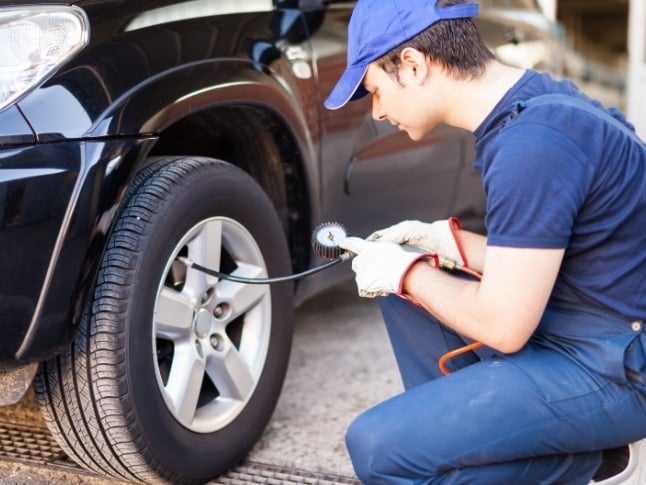8 Steps To Buying A Used Car
The goal of this guide is to help you find the best used automobile, get the best financing, and haggle for a fair price. Following these procedures makes it less likely that you'll wind up with a car that costs too much, is unsafe, or doesn't work.
1. Establish A Realistic Budget For Purchasing A Car
It's not enough to just choose a monthly payment that matches your budget when you want to buy a used car. You should also think about other charges, including as loan interest, insurance, parking fees, and upkeep. It's important to know about all these extra costs in order to make a good choice.
If you think about all of these costs, you can construct a budget that illustrates how much it will really cost you to purchase a used automobile in the long term. This way, you won't have any unexpected money troubles later on.

2. Find The Ideal Used Car
Buying a used car is harder than buying a new one. When you buy a new car, all you have to do is go to the dealership and pick one out. Buying a used car is a little more complicated.
Here are some things to think about when buying a used car:
Choosing a car: Find a model that is available, has low mileage, is in good shape, has never been in an accident, has been well cared for, and is easy to get to.
Seller Credibility: Check the seller's reputation to lower the chance of fraud.
Car Choice: Pick a car depending on its age, features, mileage, and price, as well as your driving style, passenger needs, and budget.
Suitability: Make sure the automobile you choose is good for your daily driving needs. For example, don't buy a sports car to drive your kids around every day or a big car to go around in the city.
Performance Evaluation: In addition to size and performance, think about safety ratings, fuel efficiency, and insurance prices.
Choosing an Electric Vehicle: As used electric cars become more common, it's more crucial than ever to think about the sort of powertrain.

3. Consider The Certified Pre-Owned Car Option
Certified pre-owned (CPO) cars are a good choice between used and new cars because they come with a factory warranty. CPO cars are usually low-mileage cars that are only a few years old. The original manufacturer inspects and fixes them up very carefully. CPO autos come with longer warranties from the manufacturer than typical used cars that are offered "as-is." These warranties often include extras like travel interruption coverage and roadside help.
CPO programs also provide specific financing options with lower interest rates than regular used car loans, which lowers the total cost of the loan. It'sed used cars are only sold by a brand's franchised dealerships, which makes sure that they meet the manufacturer's specifications. A automobile is not really "certified" by the manufacturer if it has not been checked out and repaired by the brand's dealership. Manufacturer-certified pre-owned cars come with a warranty that covers repairs at any of their dealerships. This is better than dealership warranties on standard used cars because it covers more.

4. Find Affordable Pre-Owned Car Financing
Getting a loan is an important step for many people who want to buy a used car. Some people can pay in cash, but most will need a loan. Getting pre-approved before going to a dealership is a good idea because it could save you money in the long run.
When you buy from a private seller, you have to pay for it yourself, which often means higher loan rates because of the higher risks. There are several places other than traditional banks that can help you get a loan, such as credit unions, community banks, online banks, finance firms, and vehicle dealerships. Each of them has its own set of perks. Credit unions usually have lower rates, community banks offer a more personal touch, online banks are convenient, and finance corporations work with certain types of borrowers.
After you've chosen a lender, fill out an application for a loan with correct personal and financial details. You can compare offers from several lenders without hurting your credit score by applying to more than one. Don't forget to think about the whole cost of the car, make a down payment, and choose shorter loan periods to save money and limit your risks.

5. Decide Where To Buy A Used Car
There are a lot of different places that sell and finance old cars, and each one has its own prices, services, and convenience of use. It's a good idea to do a lot of research on dealerships or sellers to make sure they are trustworthy and have a good history. You can also check with local consumer protection agencies to find out more about their reputation.
Franchised New Car Dealers: They make the purchase process easy and take care of all the paperwork, but they charge more. They have built contacts with banks and other lenders, which could help them get better financing alternatives. They also sell factory-certified used cars, which guarantees their quality and dependability.
Used car superstores, like franchised dealerships, have a lot of different cars and offer specialized services. They have a wide range of products from all across the country, as well as extra items like extended warranties that work at all locations. Prices may be more, but purchasers may like how easy and stress-free they are.
Independent used vehicle dealerships are local enterprises that can give you a personalized and possibly cheaper buying experience. They frequently have lower prices and a more community-focused approach to customer care because they have reduced overhead costs. They may not have a lot of services, but their strong local reputations make them a good choice for buyers who want a more personal touch.
"Buy Here, Pay Here" dealers help those with bad credit, but they charge exorbitant interest rates, are aggressive about collecting payments, and threaten to take back the car. It helps those with bad credit who need quick fixes.
Private-party sellers can offer lower costs and better returns for sellers, but they also need more paperwork, offer less consumer protection, and do deals "as is" with no recourse for the buyer. It appeals to people who are willing to go through a more complicated process for a deal that might be good for them.

6. Research, Test Drive, And Inspection
When you buy a used car, it's really important to do a lot of research. After choosing a possible car and getting a loan, look into its past. Use services like Carfax or Autocheck to get a vehicle history report that shows past accidents, damage, theft records, and ownership information. This report also shows the vehicle's maintenance history and registration information, which can help you figure out how good of a shape it is in.
A test drive is also a very important part of the buying process. Change the seats, test the systems, and check the performance. Pay attention to engine noises, the quality of the ride, the steering, and the warnings on the instrument panel. A solo test drive on roads you know well gives you a good idea of how the car works. After that, it's a good idea to have an independent mechanical check done to find any hidden problems and figure out how much repairs will cost. This will help with negotiations and make sure the mechanical integrity of the car.

7. Negotiate And Finalize The Paperwork
Let the seller start the price discussion when you buy a secondhand automobile to avoid emotive pricing. Use market-based reasoning to respond, and be polite yet strong. Leave your contact information, but be ready to walk away if you need to. Check your own calculations and act professionally, patiently, and confidently.
It's easy to sign prepared papers when you buy from a dealership. Don't forget to look for extra expenses. When you sell something privately, make a bill of sale that lists the specifications and any repairs that could be needed. distinct states have distinct rules on title transfer, registration, and the paperwork that needs to be done.

8. Consider Add-Ons, Warranties And Insurance
When you sign the last papers, you'll probably be bombarded with offers for further things. You can find almost everything that a dealer's financing office sells somewhere else. You should take the time to look at what the dealer has to offer and compare it to what is available on the market.
Buying auto insurance to cover your new car is not only a good idea, but it's also the law in almost every state. Most lenders will want you to have insurance on any automobile they give you, even if it's not required. Different states and lenders will require different amounts of coverage.
It took a long time, but now you possess an automobile. You should make sure that it is well cared for and that you do things to keep its worth. You can keep your car from losing value by taking care of it. You want your trade-in value to be as high as possible when it's time to get a new car.









